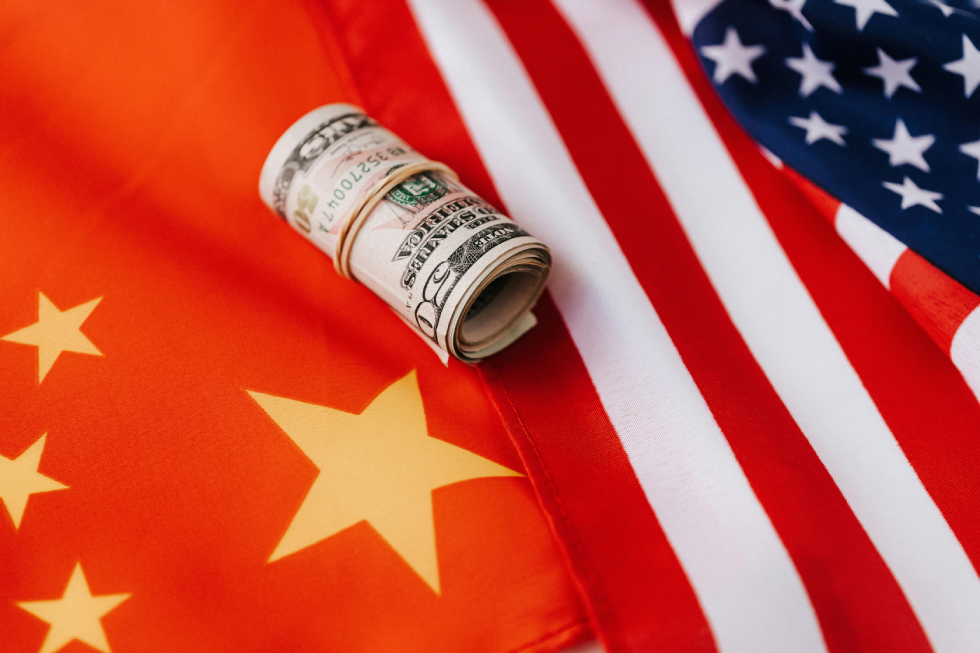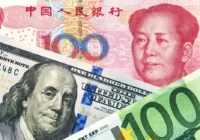Since the last fiscal quarter, the United States has officially started to cut interest rates. This is not surprising, but the extent of the rate cut exceeded many expectations. Even so, the Federal Reserve, the central banking system of the US — colloquially referred to as “the Fed” — envisions four more rate cuts in 2025 and 2026. If this continues, it will likely negatively impact the US financial market and cause China’s currency, called the renminbi (renminbi), to strengthen in the long run. It is even possible that the US will be “harvested” by China in reverse.
US may lose the dominant position in the US-China “competition”
Over the past half-century, due to its so-called advantages such as autocratic politics, the whole-nation system and unfair competition, China has developed rapidly in the fields of economy, science and technology. However, China’s bandit development logic over the years has also caused extreme dissatisfaction among most democratic countries in the world. This includes, most importantly, the US.
In 2018, under the impetus of President Donald Trump’s administration, Western countries led by the United States launched a “trade war” against China. Since the US holds the most powerful weapon in global trade — the dollar — China has been forced into a very passive position regarding global trade. However, it is unrealistic for the US to defeat communist China with a few trade barriers. The competition between major powers is often a long-standing game that depends not only on who has the bigger fist but also on who has a stronger determination.
However, no one expected that in a few years, the US macro-economy would be in trouble. Since 2020, the US has experienced severe inflation. Usually, this requires the Fed to raise interest rates, but this is not the case. With the US debt hitting new highs, breaking through the $35.5 trillion mark at the end of 2024, the Fed is forced to lower interest rates in order to halt the debt pressure.
If the Fed continues to cut interest rates, the advantage the US dollar has accumulated over the years will disintegrate more quickly. Many countries are now promoting a “multi-currency” settlement system under the active advocacy of China. China is also eroding the original advantages of the dollar bit by bit. Last August, as soon as the news of the Fed’s upcoming interest rate cut was released, the renminbi rose by more than 1,000 basis points within just one week. It can be said that the losses the renminbi suffered due to past US interest rate hikes were all compensated at once.
China is about to reap the US in reverse
The US is currently at a crossroads: raising interest rates is not feasible with the current debt situation, but lowering interest rates further will cause extreme consequences. First, when the dollar depreciates, or loses value, capital suddenly becomes the most mischievous troublemaker. Investors are likely to go to other places such as China to find better investment returns. Capital is profit-seeking, and investors will go wherever the profit is higher. This means that more dollar funds would flow into China.
Second, if the renminbi appreciates, or increases in value, it will boost the real purchasing power of Chinese consumers. This will substantially minimize the Chinese people’s dissatisfaction with the government.
Third, there is a deeper “currency war” brewing behind the scenes. The dollar’s global dominance has caused other countries to offload dissatisfaction onto the dollar. In other words, dissatisfaction with US monetary policy has reinforced China’s ability to challenge the United States to a certain extent.
Fourth, although the depreciation of the dollar might result in sluggish exports for China, the appreciation of the renminbi may buy China more bargaining chips in the global game.
The macroeconomic situation of the US is not very optimistic. Under such circumstances, the turmoil brought about by this wave of interest rate cuts in the US may open up more strategic opportunities for China. Therefore, in the coming year, any minor strategic mistake in US monetary policy is likely to lead to a fierce and fatal counterattack from China, which has been eyeing the US for a long time.
[Cheyenne Torres edited this piece.]
The views expressed in this article are the author’s own and do not necessarily reflect Fair Observer’s editorial policy.
Support Fair Observer
We rely on your support for our independence, diversity and quality.
For more than 10 years, Fair Observer has been free, fair and independent. No billionaire owns us, no advertisers control us. We are a reader-supported nonprofit. Unlike many other publications, we keep our content free for readers regardless of where they live or whether they can afford to pay. We have no paywalls and no ads.
In the post-truth era of fake news, echo chambers and filter bubbles, we publish a plurality of perspectives from around the world. Anyone can publish with us, but everyone goes through a rigorous editorial process. So, you get fact-checked, well-reasoned content instead of noise.
We publish 2,500+ voices from 90+ countries. We also conduct education and training programs
on subjects ranging from digital media and journalism to writing and critical thinking. This
doesn’t come cheap. Servers, editors, trainers and web developers cost
money.
Please consider supporting us on a regular basis as a recurring donor or a
sustaining member.
Will you support FO’s journalism?
We rely on your support for our independence, diversity and quality.










Comment
Nice article!